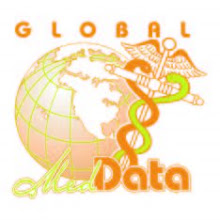Much has been written about speech or voice recognition software in the medical industry and there are certainly some big name companies trying to sell you the latest technology, claiming it will save you money in the long run and produce instant reports. According to feedback from our customers at Global MedData and many independent studies, this is far from reality.
The Journal of Digital Imaging reported, "Speech recognition dictation systems slow down the individual productivity of the radiologists' dictation process by at least 25%. Radiologists are assuming the role of transcriptionists as well as diagnosticians. Mistakes occur that would not with the use of a traditional dictation system and professional transcriptionists. It does not necessarily benefit the radiologists that use it."
Global Meddata's customers have told us they still prefer to continue to use our services for accuracy, efficiency, cost and turnaround times. While some research has shown that one of the single benefits of voice recognition software is the reduction in report time turnaround from 133 hours to 56 hours in 2001, to about 14 hours today, this is still not a realistic figure because someone is still required to check the report for mistakes.
"There are many benefits of voice recognition, but unfortunately we have been facing some technical problems that are impacting our productivity, " says Joel Gross, MD, assistant professor of radiology at Harborview Medical Center in Seattle. He continues, "voice recognition is not a plug and play system. Faster computers are needed so the system doesn't freeze up. A good support team, available 24/7, that can fix problems or make necessary technical changes is essential, and must be budgeted for when making cost projections, he says. We've had problems with poor voice recognition, difficulty stopping the transcription, spell-checking, filtering reports, losing macros and speech files, and other glitches that have slowed us down. In addition we've also had problems with the system interfacing with our RIS system. We've had situations where our voice recognition system has overwritten changes we've made to our reports in our RIS system, which could potentially lead to medico-legal problems. These technical problems have led some radiologists to simply type in the report themselves instead of dictating into the voice recognition system These problems lead to a decrease in radiologists productivity and satisfaction," he adds.
While it may be true that voice recognition has reached 95% accuracy (or thereabouts), here are some very common errors that only a medical trained transcriptionist can distinguish. For example:
- "urine" from "you're in"
- "dilate" from "die late"
- "cauterize" from "caught her eyes"
- "nitrate" from "night rate"
So, is voice recognition software about to replace digital transcription service? Not likely and not for a decade at least. In the meantime, our customers are not convinced and continue to use our transcription and document management solutions. If they require an urgent 2 hour turnaround at the end of the day, we provide it, and at a cheaper cost than in-house. Global MedData is not just an out-sourced transcription service, our documents will easily integrate into any systems you choose to use. In fact, we offer seamless integration into some of the leading EMR systems whose customers still choose our transcription services.
For a Free Trial, we can get you started within 20 minutes.
Please fill out the form here: https://www.globalmeddata.net/new/Contact.asp
Sources: http://www.innovations-report.com/html/reports/studies/report-18165.html


3 comments:
Thanks for sharing...
Regards,
SBL Business Transcription
Very important information about transcription services. I think manual transcription is the best in the medical transcription industry. for good work you can contact us.
Academic Transcription
A theme is a central concept of the literary function on which the complete literature is dependent on. It's not the exact same as a subject matter which can be explained in a phrase or two. Alternatively, it is an idea that the writer desires to express about the pay to write paper matter.
Post a Comment